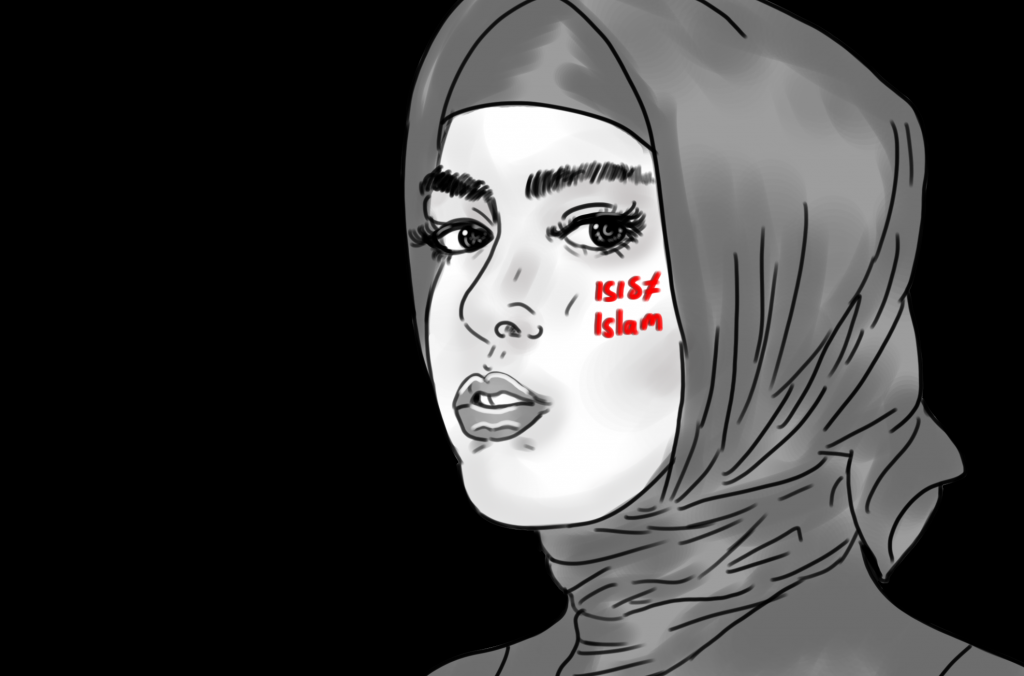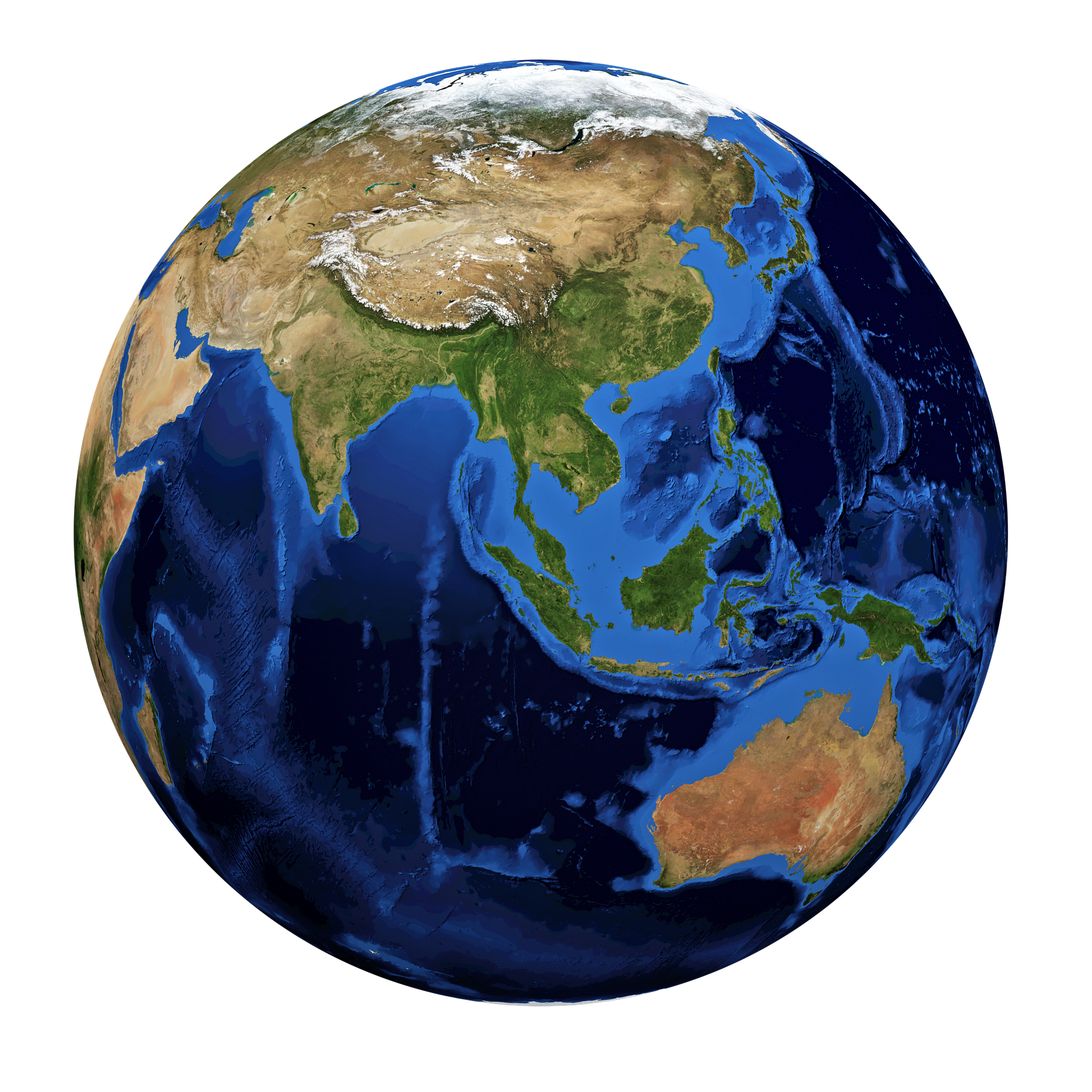ISIS is not a representation of Islam; know the difference
Muslims are often portrayed in the wrong context. Could this be from lack of knowledge on the religion Islam? Or could it be resistance to Muslims from recent terror attacks?
What are some thoughts that come to mind when you hear or see the word Islam or Muslim? Barbaric. This is the term that we see and hear being used in regards to the actions of terrorist organizations and those who attack in the name of God. We have seen and heard it against terrorist organizations who twist and warp the words taught in the religion Islam — such as ISIS, Al-Qaeda and the Taliban. But this term is also being associated with Muslims, followers of the religion.
Such terror groups use Islam as a tool to bring more people together, hence how ISIS was able to build their caliphate in Raqqah, Syria. They misuse the verses from the Quran to justify their terror attacks. “O believers! Do not insult what they invoke besides Allah,” 6:108 Surah Al-An’am, The Holy Quran. Islam teaches us to be kind to our brothers and sisters from other faiths and backgrounds, not to kill them.
From an American, non-Muslim perspective, the fear and tension ignited in people stems from what they see on television, and this fear is normalized. At least this is how a lot of Muslims feel, only it’s much worse as they know that instead of the perpetrator, they will be the ones facing the consequences.
Terror attacks such as 9/11, the 2017 Manchester Arena bombing and IS led attacks in Europe are labeled as radical Islamist attacks, which becomes the leading cause of the affiliation of the religion with these attacks. This generates more tension against those who are visibly Muslim. For example, these tensions led to the banning of the Burkini and Burqa in France where women caught wearing the garment that covers the body and face, excluding eyes, will be fined 150 euros This fear, hatred and prejudice against the religion of Islam along with those who practice it is called Islamophobia, which only creates more suffering.
Chances are you have a Muslim in your or in your loved one’s lives. You either know one from work, school, a friend group or community. Now, how much do you actually know about Muslims and our religion?
“Whoever takes a life — unless as a punishment for murder or mischief in the land — it will be as if they killed all of humanity; and whoever saves a life, it will be as if they saved all of humanity,” 5:32, Surah Al-Ma’idah, The Holy Quran.
Salam means peace in Arabic. Salam originates from the word Islam. Islam is a religion of peace, a way of life. It teaches and civilizes its followers through its verses and through the Prophet Muhammad (peace and blessings be upon him) sunnahs, which refers to his way of living. Despite what many people think or are led to believe, Islam also empowers women; the entire chapter Surah Nisa — literally translated as “The Women” — in the Quran is dedicated to them.
Islam teaches us respect. “For your Lord has decreed that you worship none but Him. And honour your parents. If one or both of them reach old age in your care, never say to them even ‘ugh,’ nor yell at them. Rather, address them respectfully,” verse 17:23, Surah Al-Isra.
Islam teaches us how to peacefully and rightfully live in this world no matter the year nor generation we are in. But, a lot of people don’t know this, instead they interpret our religion in a completely disparate context and spread this false ideology in society. When leaders and people with large audiences do this, their words permeate and impact vast amounts of people.
With Muslims being labeled as barbaric and uncivilized, offensive stereotypes originate and escalate. These stereotypes include: anyone with a beard must be a terrorist, women who veil are oppressed and were forced to do so, Muslims hate Jews and Christians, Muslim men have many wives, all Muslims are Arab, Muslims don’t believe in Jesus and Muslim women don’t have hair under their scarves.
These stereotypes are harmful and something that many people have been led to believe due to the rampant misportrayal of Muslims in the film and media industry. Anyone that reads the Quran and learns about Prophet Muhammad will know that Islam promotes peace and unity. This is why during Ramadan we have interfaith iftars, where we break bread with people from all religious backgrounds and races in order to understand and learn from one another.
As Muslims, we should not have to continually prove that we are not primitive people, that we have the same interests, hobbies, movies, foods and books as you do. That we think and love the way you do.
It’s time people stop downgrading Muslims based on your own misunderstandings, and seeing Muslim women as oppressed and needing to be “saved.”
“Let there be no compulsion in religion,” 2:256 Surah Al-Baqarah, The Holy Quran. Islam and the headscarf must absolutely not be forced onto anyone. Muslims are not oppressed and their children are not either. It’s time to break down the walls that the media and film industries have built in order to truly begin to learn about your Muslim peers, to not fear them, to know that they are just as human as you.



